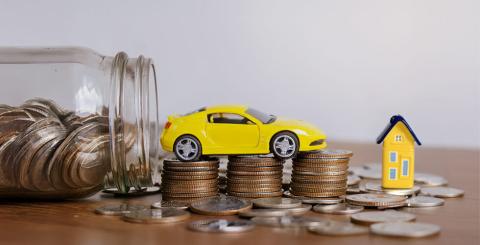BBQ: Safe grilling

Summertime is cookout season. Nothing beats the smell of a sizzling burger on a warm summer night! But are you using your BBQ safely to grill up a storm?
An estimated 40% of home kitchen fires are caused by distraction: leaving food unattended as it cooks, not using flammable products properly… But it’s important to stay alert when cooking outside too in order to prevent BBQ-related risks! Because a savvy grill master is worth their weight in gold, here are a few tips on how to have a safe and scrumptious summer.
Where to set up your BBQ
First, the golden rule: Never grill indoors! It may be tempting, but remember that even the smallest portable grills aren’t designed for use inside the house, in the garage, or even on a covered porch. To avoid accidents or carbon monoxide poisoning, you should always set up your BBQ outside:
- In a low-traffic area away from children
- On a stable, level surface
- In a well-ventilated area
- A good distance away from anything that could catch fire (trees, walls, doors, electrical wires, etc.)
Is it ok to have a BBQ on your apartment balcony? Although it is generally allowed, be sure to take the necessary precautions to prevent fire hazards, especially if your balcony is on the small side. There may also be municipal by-laws governing BBQs on balconies, so do your homework. Live in a condo? Read your declaration of co-ownership: Grills may not be allowed!
How to properly maintain your grill
If your grill has already seen its share of summers, start by giving it a deep clean with a new metal brush.
Why a new brush?
Since 2019, Health Canada has recommended that Canadians pay special attention to barbecue brushes with metal bristles. These bristles can break off and get into your food, and they pose a significant health risk if ingested. The government recommends that you carefully examine the brush before each use, replace it regularly, and make sure no bristles stick to the grill.
Prep your BBQ for grilling season
Start by making sure the burner is in good condition and gently clean it with a brush. Next, scrub the inside of the grill and the grates to remove any grease residue that could catch fire.
For charcoal grills, always keep lighter fluid far away from the BBQ, even when not in use.
For propane grills, it’s very important to check for leaks. Here’s how:
- Make sure all the burner knobs are in the off position.
- Open the propane tank valve.
- Apply a mixture of water and dish soap to the supply hose and fittings.
- Watch for bubbles or a rotten egg smell, which are signs of a leak.
- If you have a leak, tighten the fittings and retest. When in doubt, call in a specialist.
Filling and transporting propane tanks
Before driving with a fresh tank, open the windows and make sure the tank valve is closed and sealed and the tank is upright and properly secured.
These safety tips also apply to storing propane tanks at home: keep them outside somewhere out of reach of children and make sure they are upright and the valve is closed.
A propane tank has a maximum service life of 10 years, so when the time comes, be sure to take it out of circulation and bring it to a propane dealer for safe disposal. Never put propane tanks in the garbage, even empty ones!
How to cook on the BBQ
Your meat is marinated, your skewers are assembled, and you’re ready to start grilling. Here are some tips on how to safely start and shut off your BBQ:
- Start by opening the lid to release any gas that may have accumulated.
- Make sure the burner knobs are turned off.
- Fully open the propane tank valve.
- Turn on one burner knob and ignite the grill using the built-in igniter or a long grill lighter. Always insert the lighter or match into the ignition port. Never try to light your grill from above.
Be extra careful when using lighter fluid on a charcoal grill, because it’s the most common cause of BBQ-related accidents.
When grilling, never move a lit barbecue and keep the area around it clear. Avoid wearing long sleeves and use oven mitts specially designed for the BBQ (no cloth mitts). Use long-handled tongs or utensils to turn food so you don’t have to get too close to the flames. And above all, don’t lean over the grill, even if it smells good!
To shut off a propane BBQ, start by closing the propane tank valve so that any gas in the pipes will burn off completely. When you no longer see any flames, you can turn off the burner knobs.
Once the BBQ has cooled off enough, check your brush and clean the grates. Give the grill the chance to cool off completely before putting the grill cover back on.
What to do in case of fire
Even if you’re careful and take every possible precaution, fires can still break out in your BBQ (for example if the tank valve wasn’t properly closed or if food catches fire).
If your grill catches fire, keep these 3 tips in mind:
- Evacuate the area immediately
- Call the fire department
- Never try to put out the flames
In some cases, you may be able to turn off the propane or natural gas valve without risk. If not, let the fire department handle it—your safety is the most important thing!
Now that you know what to do to stay safe this BBQ season, all that’s left is to make sure your home insurance is up to date! Because there’s nothing like a yummy BBQ feast with family and friends when you have the peace of mind of knowing you’re properly insured.



